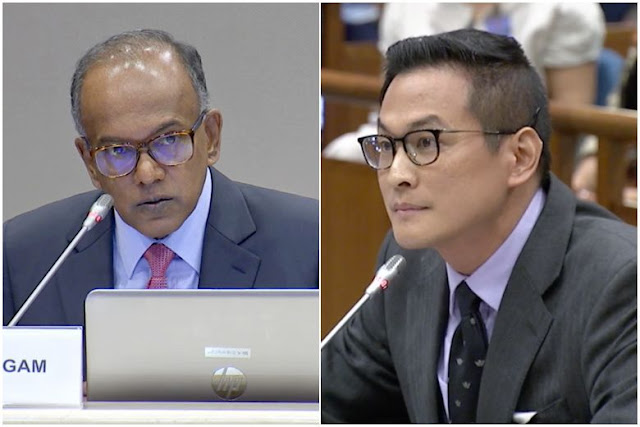Fact vs Truth?: In response to "History is not the preserve of historians"
By SEAN LIM
This op-ed, written by our ministers, is in response to Han Fook Kwang's Sunday Times piece.
Mr Han said: "The objective is not to be able to win every argument but to be able to finally say: Trust me, my approach is the better one."
By the look of how defensive the ministers are in this article, I guess Mr Han is proven right that they seem to be out to win every argument. That's pretty disappointing. Just like in life, you may win the argument but you may not win hearts over.
Some fallacies in the ministers' piece: Fact vs truth. Are they really the same? I'm afraid not. A fact is a fact - no room for argument. A fact is just a piece of information, but the truth is a blend of different facts pieced together - which may be selectively chosen to portray the truth in a certain manner.
Just take the example of the old man. I can either argue he is a dictator or a hero, depending how I choose the facts.
If I aligned myself to put him down, I can always quote how he clamped down on freedom of the press, the way he was strict with Singapore laws etc - these are facts!
If I chose to argue based on how he led the anti-colonial journey towards independence, the economic prosperity he brought for Singapore - facts too, it works the same way as well. Both are truths, but truths are manipulated with the selection of facts to interpret the truth in a certain manner.
The truth (not scientific or rational truth) , when it comes to interpretation of events/people, is really a social and political construct. That is why I agree with Mr Han that the socially-constructed truth will be clouded with non-objectivity, because the truth can be manipulated.
The eternal rule of history holds, that the victors are the ones that determine the narrative. Just because the claim that some historians/scholars may hold political agenda doesn't warrant the politicians themselves a higher political standing to interpret history. Moreover, one cannot overgeneralise and slam all historians to be so, when Dr Thum's case may be an exception.
Historians are trained to be objective, and back their arguments with authoritative sources. Even though scholars and historians may seem to be doing the same work, we have to acknowledge there are some subtle differences between them, especially in terms of objectivity.
So who, then, is suitable to interpret the "truth" and "history"?
People should be left to judge for themselves. Even though politicians are bound to be seen to have a political interest in everything they do, I'm not stopping them from presenting their side of the story, but we have to give space for revisionist versions as well. The G needs to acknowledge this. You need to convince the people and win hearts over, not to force them to adopt a certain perspective of history (*cough cough* National Education lessons in primary school).
Because come what may, if a G is firm enough that whatever they did was really for the good of the people and country, the people will naturally see it for themselves, never mind there are alternative version of the truth out there.
Being transparent and accommodative to different perspectives (good, well-argued ones) is pivotal in this era of deliberate online falsehoods. People need to be well-informed, not kept in the dark.
(Pix from The Straits Times)



Comments